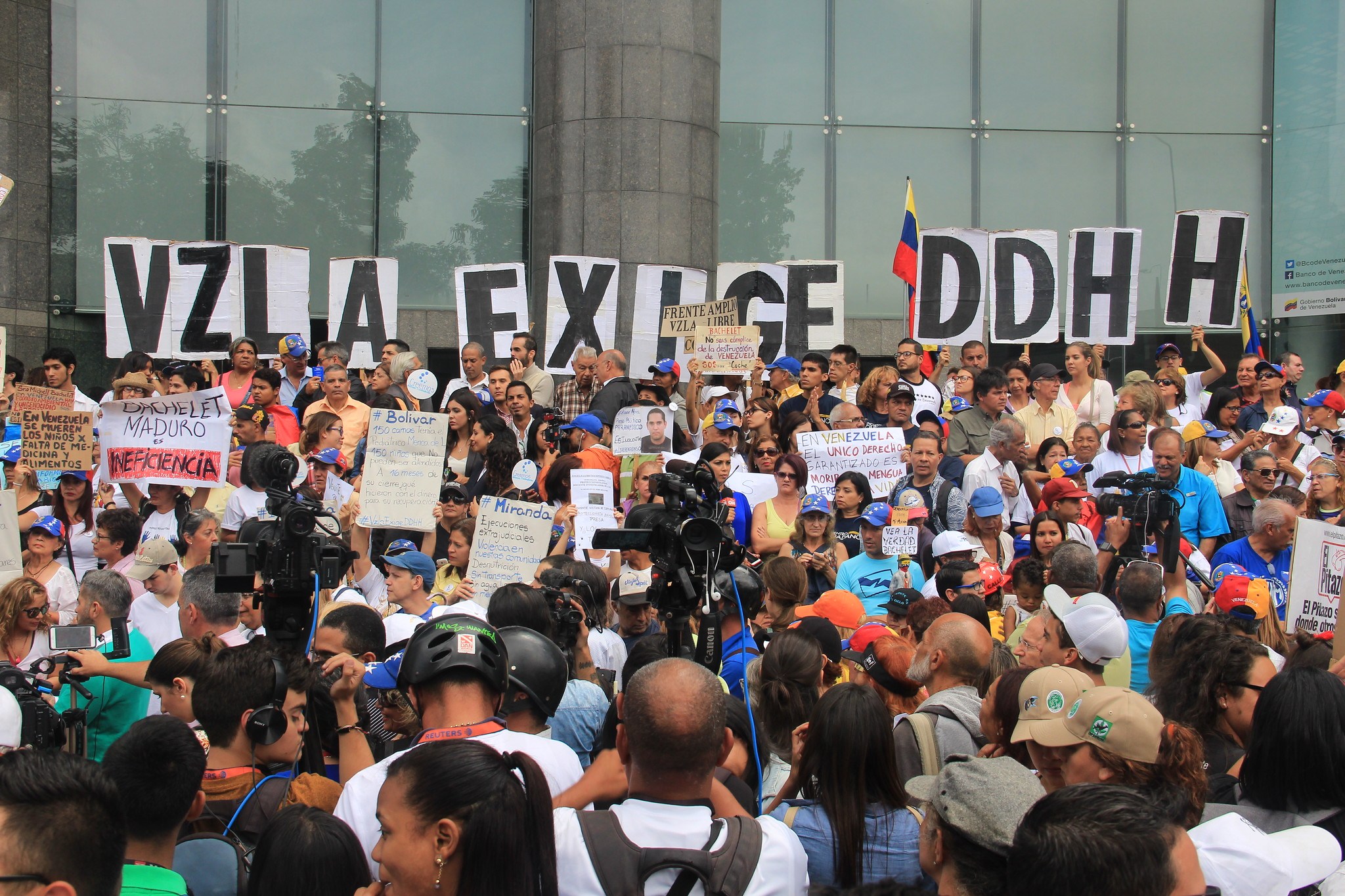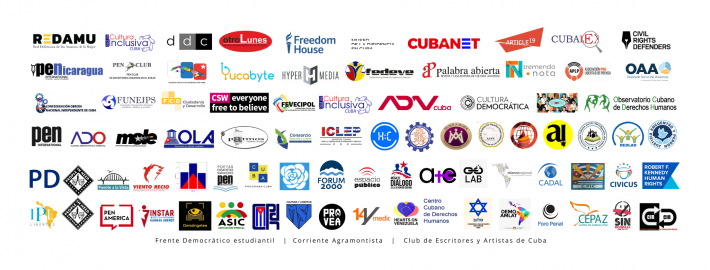As part of the work of the International Network of Citizen Activists for Human Rights (Redac Internacional), activists and human rights defenders joined efforts in a recent report titled Las voces de ellas: Situación de las mujeres venezolanas en movilidad [In her words: The situations of Venezuelan women on the move]. The document aims at visibilizing the violence to which Women on the move are subjected, through their own recounts. These women shared with us their visible and invisible wounds, their endurance and determination in the struggle for a decent life.
Redac International and the organizations that collaborated to prepare this report (Clínica Jurídica para Migrantes de la Universidad de los Andes, the Panamerican and Caribbean Union for Human Rights, Red Reto, Venezolanas Globales, Women’s Link Worldwide, Es Pa Lante, Sigma, and Centro de Atención Integral Psicopedagógica Integral), sought to focus on the lack of protection and the increase of gender-based violence in the face of the reemergence of restrictive migration policies and the breach of international human rights obligations by some States, including origin, transit, and host countries.
An earlier report by Redac Internacional showed how the response of the States to the closure of borders amid the COVID-19 pandemic had exacerbated the situation of vulnerability suffered by women and girls, by increasing “specific forms of gender-based violence (femicide, rape, trafficking and other forms of sexual exploitation) in their places of origin, during transit, and in the country of destination.”
The Venezuelan human mobility crisis in figures
The Venezuela crisis has caused the massive and enforced migration of many people in recent years, most of whom require international protection. Figures published in November 2021 by the Inter-agency Coordination Platform for Refugees and Migrants from Venezuela (R4V) indicate that an estimated 6 million people have left the country.
Most of the people in a situation of human mobility are in Latin America and the Caribbean (4.9 million), mainly in Colombia (1.84 million), Peru (1.29 million), Ecuador (508,000), Mexico (83,000), Argentina (173,200), Aruba (17,000) and Curaçao (14,200).
Outside the region, the countries that have received the largest numbers of Venezuelan migrants and refugees are the United States (462,200), Spain (415,000), and Italy (59,400). Today, Venezuela is the country of origin of the second largest number of migrants and refugees in the world, only behind Syria.
The lack of access to documentation and information on the conditions in transit and destination countries, as well as the absence of a coordinated regional response to guarantee protection and regularization mechanisms, exposes the Venezuelan migrant population to unsafe routes on their way out of the country. Therefore, it is estimated that the number of Venezuelan people on the move may be much higher than the figure in the official records. Also, the data of Venezuelan migrants with dual citizenship are not usually included.
The lack of official figures on migration makes it more difficult to weigh the true dimensions and characteristics of the migration phenomenon. Consolidated data from the Inter-agency Platform shows that 53.65% of its beneficiaries are women (34.84%) and girls (18.81%) on the move.
Mobility with a gender perspective
“A gender-based analysis of the situation of human mobility makes it possible to identify the social constructs linked to gender roles and stereotypes in the dynamic of migration, as well as the causes for leaving Venezuela,” the report states.
A report titled Mujeres al Límite. El peso de la emergencia humanitaria: vulneración de derechos humanos de las mujeres en Venezuela (Pushed to the limit. The weight of the humanitarian emergency on the violation of Women’s rights in Venezuela), documented the gendered impacts derived from the serious crisis of human rights and democracy in the country, including the feminization of poverty, the increase in maternal mortality and obstetric complications, teen pregnancy and sexually transmitted diseases (congenital syphilis and HIV), unsafe abortions associated with unwanted pregnancies, sexual slavery, femicides and other manifestations of gender-based violence in the private and public spheres, and the obstacles to access Justice”
These violations have also been denounced before international bodies by several feminist organizations. In October 2021, eight of them denounced before the Inter-American Commission on Human Rights (IACHR) the situation of defenselessness and invisibility affecting Venezuelan women and girls, the multiple forms of violence perpetrated against them, and the inaction of the Venezuelan State in preventing and investigating these situations.
Political persecution is also a contributing factor to the Venezuelan exodus, as described by the last two reports of the United Nations Independent International Fact-Finding Mission on Venezuela, which emphasized the widespread and systematic pattern of serious human rights violations in the country, as well as the deterioration of the independence and impartiality of the Venezuelan justice system in the investigation and punishment of the persecution of people critic of the regime, whether real or perceived as such by the Venezuelan Government.
The harsh reality faced by Venezuelan women during the migration process is reflected in 47 interviews conducted for this report. The experiences of 46 women and 1 trans man, who left the country between 2014 and 2021, “clearly reflect the intersecting discrimination based on gender, migration status, social class, gender identity, and sexual orientation.”
Through migration, these women are looking for strategies to stay alive. The stories show “how xenophobia has been present through physical and psychological attacks committed both by individuals from the host countries and the institutions themselves.”
Also, “cases of trafficking for sexual exploitation, sexual violence, reproductive violence, and femicide have been documented. In general, the interviewees were able to identify experiences of gender-based violence and xenophobia, which are directly intertwined and help to explain the multiple forms of discrimination experienced by them”.
In addition, “the dimension of sexual violence is strongly prevalent in the migration process of Venezuelan women, linked to xenophobia and the hypersexualization of their bodies.”
General recommendations
Some of the recommendations that emerge from the report include the recognition and protection of the human rights of the people who travel through different territories during the mobility process, and the design of migratory response from a human rights and gender perspective that “guarantees the observance of the principles of non-refoulement, family reunion, the prohibition of refusal of admission at the border, and easy access to mechanisms of international protection, as well as the regularization of a migration status”.
- Addressing human trafficking from a human rights and gender perspective, as well as “adopting prevention, investigation, prosecution and reparation measures with a gender and sexual diversity based perspective in situations of gender-based violence and discrimination.”
- Improving the education of State agents, especially migration agents, on the existence of international human rights obligations and the due respect for them, while emphasizing the need to study each individual case during the identification of the people in need of international protection.
- Guaranteeing access to health for Venezuelan LGBTI women and people, which requires developing programs that address the experience of migration, including psychosocial and physical healthcare with an emphasis on sexual and reproductive health.
- Adopting awareness-raising initiatives to prevent xenophobia and racism.
Other recommendations directed to the international community involve “strengthening regional cooperation mechanisms and instruments to address the Venezuelan human mobility crisis with a human rights perspective,” as well as “supporting and facilitating the adoption of adequate measures to face the human mobility crisis with a human rights and gender perspective, which includes specific policies for the attention of women and girls, taking into account the specific vulnerabilities and risks that they face.
The report also recommended the funding of social insertion and employment programs aimed at Venezuelan women and LGBTI people and “the creation of mechanisms aimed at recognizing the need for truth, justice, and reparation of Venezuelan women victims of human rights violations and gender-based violence”.
Download the full report in Spanish HERE.
Translated by Jose Rafael Medina




